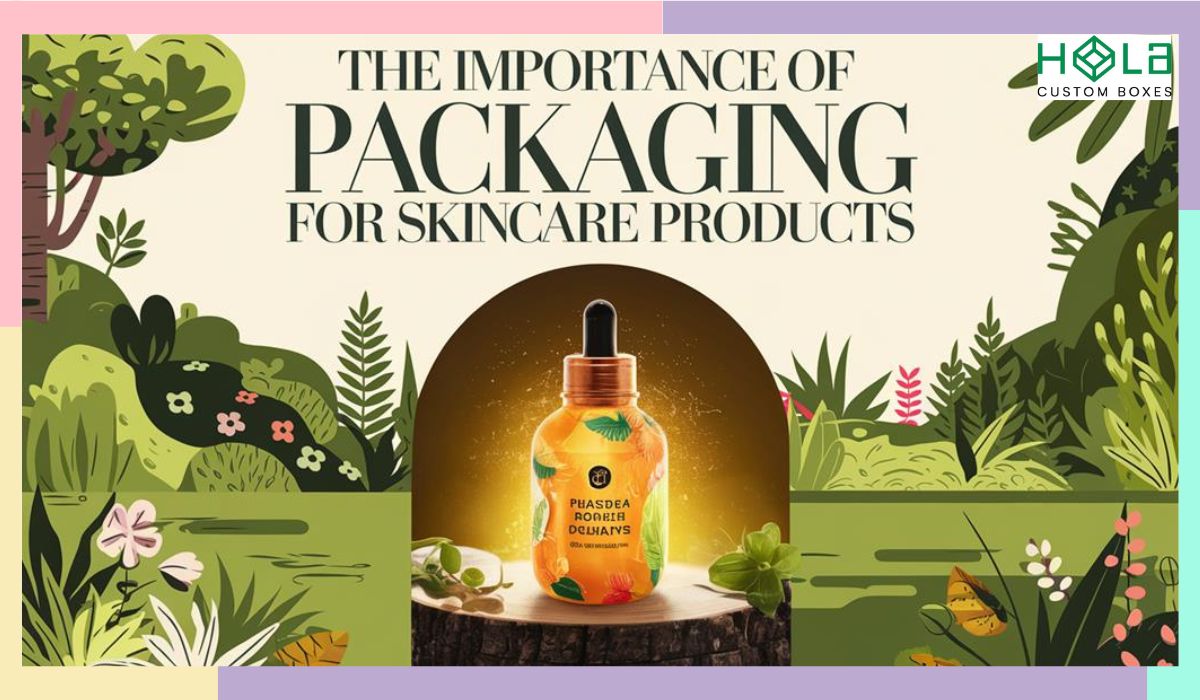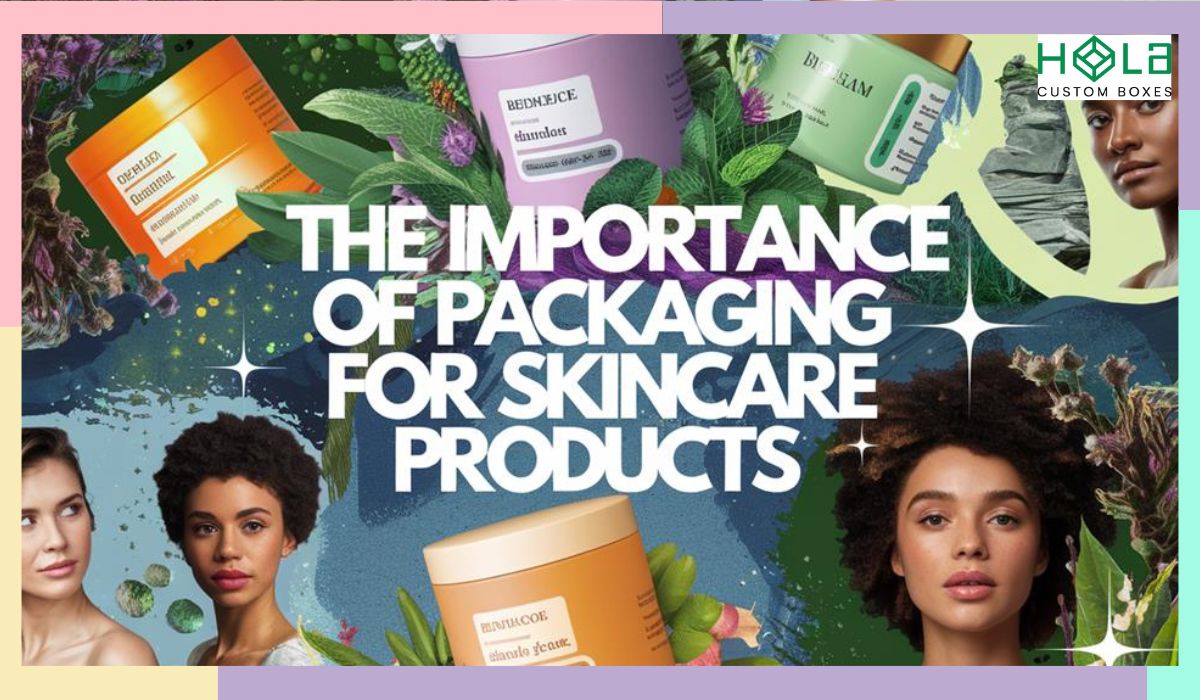The Importance of Packaging for Skincare Products
2025-08-04 12:27:33
Packaging for skincare products is critically important for several reasons. It protects formulations from contamination and environmental factors, preserving active ingredients' efficacy. Furthermore, packaging designs influence consumer perceptions, with attractive and sustainable options enhancing brand identity and engaging eco-conscious consumers. Packaging types like pump bottles and glass jars cater to specific product needs and user convenience. In addition, compliance with regulatory standards guarantees safety and transparency. As a result, the strategic selection of packaging can significantly impact marketability and consumer trust. Exploring further can reveal how innovation and sustainability shape the future of skincare packaging.
Main Points
- Skincare packaging protects formulations from contaminants, preserving product integrity and ensuring safety from light, air, and moisture exposure.
- Attractive and innovative packaging influences consumer perception, enhancing the likelihood of impulse purchases and brand loyalty.
- Sustainable packaging options, such as biodegradable materials and refillable containers, meet consumer demand for eco-friendly solutions.
- Compliance with regulatory requirements is crucial for ingredient disclosure and safety standards, preventing legal repercussions and maintaining brand reputation.
- User convenience and aesthetic appeal in packaging design significantly impact consumer purchasing decisions and perceived product quality.
Importance of Skincare Packaging
Skincare packaging plays an imperative role in cosmetic products' overall effectiveness and marketability. It serves as the first line of defense, protecting formulations from contaminants such as bacteria, dust, and environmental elements that can compromise efficacy. By maintaining product integrity, high-quality packaging safeguards active ingredients from detrimental exposure to light, air, and moisture, which is crucial for preserving the potency of skin care products.
Moreover, the design and quality of packaging greatly influence consumer perception. Attractive, innovative designs enhance brand recognition and foster consumer loyalty. This relationship between packaging aesthetics and consumer behavior highlights the importance of strategic packaging solutions that resonate with target audiences.
Furthermore, compliance with regulatory requirements is paramount. Adequate packaging must disclose ingredients and adhere to safety standards, ensuring consumer trust and product safety.
In addition, well-designed packaging contributes to higher shelf visibility, facilitates impulse purchases, and positively impacts a brand's sales and market positioning.
To conclude, the importance of skincare packaging extends beyond mere containment; it encompasses safeguarding product integrity, shaping consumer perceptions, and adhering to necessary regulations, ultimately driving commercial success in a competitive market.
Types of Skincare Packaging

The choice of packaging type is critical for functionality and consumer appeal in cosmetic formulations. The types of skincare packaging not only influence the preservation of the product but also affect user experience and brand perception. Various packaging options cater to different formulations and consumer preferences.
Pump Bottles: Ideal for lotions and creams, they provide precise dispensing and minimize contamination.
Plastic Bottles: Lightweight and cost-effective, they offer practicality but may lack the luxurious appearance of glass.
Glass Bottles: Known for their upscale look, they provide an airtight seal that preserves freshness, making them suitable for high-end products.
Droppers: Commonly used for serums, they allow for controlled application and enhance user experience by preventing waste.
Jars: Best suited for thick creams, they offer easy access to the product but expose it to air and potential contamination.
Each type of skincare packaging plays a crucial role in maintaining the integrity of the formulation while appealing to consumers' aesthetics and usability preferences.
Consequently, selecting the appropriate packaging is essential for delivering quality skincare products that meet market demands.
Skincare Packaging Selection Criteria
Selecting the appropriate packaging for skincare products involves a multifaceted analysis of various criteria influencing product performance and consumer satisfaction. Each product's unique requirements dictate specific packaging solutions, ensuring that ingredients remain effective and the user experience is optimized.
The packaging selection criteria encompass ingredient compatibility, user convenience, weight considerations, and cost implications while maintaining a solid brand image. Sensitive ingredients like Vitamin C necessitate protective containers, while user-friendly designs enhance accessibility and minimize waste.
| Criteria | Importance | Examples |
|---|---|---|
| Ingredient Compatibility | Preserves product efficacy | Glass bottles for serums |
| User Convenience | Enhances consumer experience | Pump dispensers for lotions |
| Lightweight Packaging | Reduces shipping costs | Plastic tubes for creams |
| Cost Implications | Balances quality and affordability | Custom-designed boxes |
| Brand Image | Reflects brand values | Eco-friendly packaging solutions |
Eco-Friendly Innovations in Skincare Packaging
As environmental awareness grows, the skincare industry is embracing sustainable packaging solutions to meet the rising demand from eco-conscious consumers. Key options include post-consumer recycled (PCR) plastics that reduce waste, biodegradable films that naturally decompose, compostable materials offering cradle-to-grave solutions, and refillable containers that promote reuse. Lightweight packaging also helps reduce carbon emissions during shipping, supporting broader sustainability goals. These innovations are largely influenced by the clean beauty movement, with 73% of consumers willing to pay more for environmentally responsible packaging.
Aligning Brand Values with Consumer Expectations
Sustainability isn’t just about materials—it’s also about transparency and trust. With 66% of shoppers evaluating a brand’s environmental practices before making a purchase, clear communication about sustainable sourcing is essential. Advanced solutions like airless packaging not only preserve product quality but also align with green initiatives. By adopting these sustainable strategies, skincare brands can strengthen consumer loyalty, reduce environmental impact, and position themselves as leaders in responsible beauty packaging.
Market Trends in Cosmetic Packaging

Increasingly, skincare brands are adapting to evolving consumer preferences by exploring innovative packaging trends that prioritize sustainability and functionality. The demand for sustainable packaging is surging, with 62% of consumers willing to pay a premium for eco-friendly options, indicating a shift towards environmentally responsible choices.
Minimalist packaging designs have also gained traction. They align with clean beauty aesthetics that emphasize product purity and appeal to modern consumers who value simplicity and effectiveness.
Moreover, airless packaging is becoming a staple in the industry, extending product shelf life by preventing air exposure and catering to those seeking long-lasting skincare solutions. The trend of refillable containers is particularly significant among eco-conscious consumers, as brands adopt this approach to reduce waste while fostering customer loyalty.
Intelligent packaging technology is also emerging, enhancing user experiences through features like QR codes that provide ingredient transparency and usage information.
This convergence of sustainable packaging, minimalist design, airless systems, refillable options, and intelligent technology reflects a thorough response to consumer preferences, positioning brands to meet the demands of a more informed and environmentally aware market.
Expert Guidance on Packaging
Leveraging expert guidance can be pivotal for brands aiming to enhance their product offerings when maneuvering the complexities of skincare packaging. Consulting with professionals in this field guarantees that the packaging aligns with product requirements and improves overall user convenience.
Critical considerations from expert guidance include:
- Tailored solutions that provide superior protection for skincare products.
- Regulatory navigation to confirm compliance with labeling laws and safety standards.
- Enhanced brand identity through innovative packaging design that attracts consumers.
- Insights into market trends, encouraging the adoption of sustainable materials and minimalistic designs.
- Streamlined selection processes that balance cost, quality, and aesthetic appeal.
Engaging with specialists in packaging materials and design fosters an environment where brands can explore innovative packaging solutions that resonate with their target audience.
By prioritizing compliance and leveraging sustainable practices, brands safeguard their products and reinforce their commitment to environmental stewardship.
In the end, expert consultation is a critical foundation for brands seeking to establish a strong presence in the competitive skincare market.
Skincare Packaging Impact on Consumer Perception
Expert guidance in skincare packaging enhances product protection and compliance and fundamentally shapes consumer perception. Research indicates that 72% of consumers assess a product's quality through its packaging design and materials. This underscores the importance of adequate packaging in establishing a solid first impression.
Eye-catching and unique packaging can greatly enhance shelf visibility, prompting impulse purchases while elevating brand recognition among discerning consumers.
Furthermore, the growing trend towards sustainable materials resonates particularly well with eco-conscious consumers; 66% are willing to pay a premium for products that incorporate environmentally friendly packaging. Minimalist packaging trends, which convey purity and simplicity, further appeal to modern consumers, enhancing the perceived value of skincare products.
Additionally, packaging emphasizing ingredient transparency and brand values fosters trust and loyalty, as evidenced by the fact that 80% of consumers prefer brands that openly communicate their sourcing and sustainability practices.
Packaging and Brand Identity
Packaging is a significant element in establishing brand identity. Research indicates that 70% of consumers are more inclined to purchase products adorned with attractive packaging. This underscores the fact that packaging influences consumer behavior and brand perception. Unique designs and materials enhance brand recognition and foster consumer loyalty.
Critical aspects of adequate packaging include:
Aesthetic Appeal: Color, typography, and shape that resonate with target audiences.
Emotional Engagement: Evoking feelings that create a memorable unboxing experience.
Differentiation: Standing out in a crowded market through distinctive design elements.
Sustainability: Incorporating eco-friendly products that align with consumer demand for sustainable packaging.
Brand Values: Communicating the brand's mission and social responsibility through packaging choices.
Incorporating sustainable practices improves a brand's reputation and attracts environmentally conscious consumers.
The emotional connection fostered by well-designed packaging further reinforces brand identity, eventually leading to increased sales performance and long-term consumer relationships.
Consequently, the strategic development of packaging is essential for any skincare brand aiming to thrive in today's competitive landscape.
Regulatory Considerations in Skincare Packaging
Skincare brands must navigate a complex web of regulatory considerations that govern packaging practices in an increasingly regulated landscape. Key among these are labeling laws, which mandate clear ingredient disclosure and usage instructions to guarantee consumer safety. Compliance with these regulations is essential not only for informed purchasing decisions but also for maintaining brand integrity.
Moreover, regulatory standards dictate that packaging materials must meet stringent safety requirements to prevent contamination and preserve product integrity throughout its shelf life. This is particularly critical given the potential for harmful interactions between skincare formulations and inadequate packaging.
Environmental regulations also shape the industry, compelling brands to adopt sustainable practices that minimize waste and environmental impact. This includes selecting eco-friendly packaging materials and implementing recycling initiatives in line with global sustainability goals.
Additionally, companies must be vigilant about consumer protection laws, as misleading claims can lead to legal repercussions and damage reputations.
